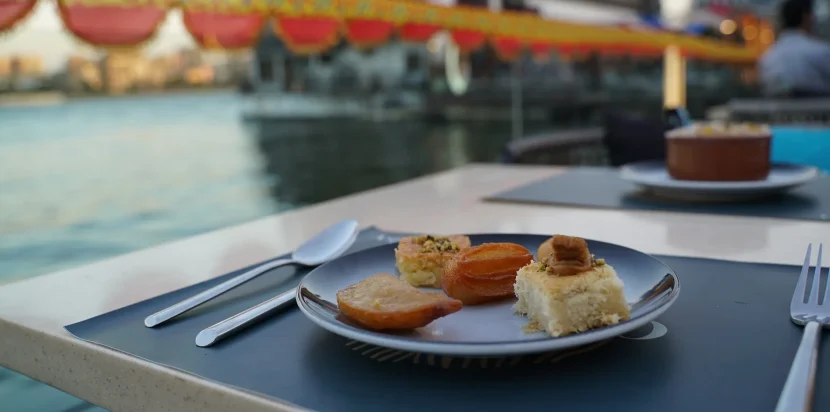A guide to Egyptian dining etiquette is essential for anyone visiting or living in Egypt who wants to fully appreciate its culture. Food in Egypt is more than nourishment – it is a symbol of hospitality, respect, and tradition. Whether dining at a family home, enjoying a casual street meal, or sitting down at a fine dining restaurant, understanding local customs helps guests show respect and enjoy the experience. Egyptian dining etiquette combines centuries-old traditions with modern influences, creating a unique and welcoming atmosphere.
The Importance of Dining in Egyptian Culture
Dining is one of the most significant aspects of Egyptian social life. Meals bring families and friends together, and hospitality is deeply valued.
-
Food as a Symbol of Hospitality
In Egypt, offering food is an expression of generosity. Guests are treated with honor, and refusing food may sometimes be seen as impolite.
-
Social Gatherings
Meals are often social events, not just times to eat. Conversations, laughter, and storytelling are essential parts of dining.
-
Celebrations and Traditions
Special occasions such as Ramadan, weddings, and family gatherings revolve around food. Etiquette during these meals highlights respect for tradition and unity.

General Egyptian Dining Etiquette
Certain customs apply to most dining situations in Egypt, whether casual or formal.
Greetings and Seating
It is customary to greet the host and other guests warmly before sitting down. Elders and guests of honor are usually seated first.
Eating with the Right Hand
Traditionally, Egyptians eat with the right hand, as the left hand is considered less clean. Even when utensils are used, this custom is respected.
Sharing Food
Meals are often served in shared dishes placed at the center of the table. Taking modest portions and leaving some food for others is part of the etiquette.
Accepting Offers
Hosts may offer more food repeatedly as a sign of generosity. It is polite to accept at least a small portion, even if you are full.
Etiquette in Restaurants
When dining in restaurants, there are additional customs to observe.
Ordering Food
It is common to order multiple dishes to share, especially in Egyptian restaurants. This reflects the cultural value of community dining.
Tipping Practices
Tipping, or “baksheesh,” is expected in Egypt. In restaurants, leaving 10-15% of the bill is standard.
Dress Code
In casual eateries, simple attire is fine, but in fine dining venues, smart or modest clothing is appreciated.
Respect for Staff
Politeness toward servers is highly valued. Egyptians often use kind words and gratitude when interacting with staff.
Dining at an Egyptian Home
Being invited to a local’s home is considered an honor, and etiquette is especially important.
Bringing a Gift
It is polite to bring a small gift, such as sweets or flowers, when visiting an Egyptian household.
Waiting for the Host
Guests usually wait until the host invites them to start eating. Elders or honored guests may be encouraged to begin first.
Complimenting the Food
Hosts take pride in their cooking, so expressing appreciation for the meal is essential.
Finishing the Meal
It is customary to leave a small amount of food on your plate, as finishing everything may signal that you are still hungry.
Special Considerations During Ramadan
Ramadan is a central part of Egyptian culture, and dining etiquette shifts during this holy month.
Iftar Meals
Breaking the fast at sunset is a communal event. Dates and water are typically consumed first, followed by a larger meal.
Respecting Fasting Hours
Non-Muslims are not required to fast, but it is respectful to avoid eating or drinking in public during daylight hours.
Generosity and Sharing
Hospitality is especially important during Ramadan, and guests may be invited to share in iftar meals with families or communities.
Modern Influences on Egyptian Dining
As Egypt modernizes, dining etiquette has adapted while still honoring tradition.
International Restaurants
Cairo and Giza now host many international venues where global dining etiquette applies, but Egyptian hospitality remains visible.
Technology and Dining
Reservations via apps, online reviews, and delivery services have influenced how Egyptians dine out, especially in urban areas.
Blending Old and New
While formal customs remain strong, younger generations often embrace a more relaxed style. Still, respect for elders and hospitality continues to shape behavior.

Why Dining Etiquette Matters
Observing dining etiquette in Egypt builds trust, respect, and positive connections. Guests who follow these customs show appreciation for local culture and often enjoy warmer interactions with hosts and locals.
Finally
This guide to Egyptian dining etiquette highlights how food in Egypt is about much more than taste – it is about culture, respect, and connection. From eating with the right hand to tipping in restaurants and honoring traditions during Ramadan, these customs reflect Egypt’s values of hospitality and community. For both locals and visitors, understanding dining etiquette ensures that every meal becomes not just nourishment but a memorable experience of Egyptian culture.
 Phone: +010 50 855 838
Phone: +010 50 855 838  Email: restaurant@asperogroup.com
Email: restaurant@asperogroup.com 


Comments are closed